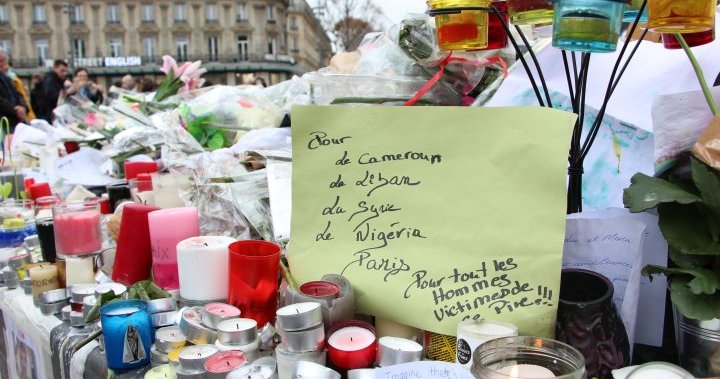
French court set to deliver verdict in trial over 2015 Paris attacks
Global News
The violence killed 130 people on Nov. 13, 2015, in what was France's deadliest peacetime attack. The court will hand down its verdict Wednesday.
Over the course of an extraordinary nine-month trial, the lone survivor of the Islamic State extremist team that attacked Paris in 2015 has proclaimed his radicalism, wept, apologized to victims and pleaded with judges to forgive his “mistakes.”
For victims’ families and survivors of the attacks, the trial for Salah Abdeslam and suspected accomplices has been excruciating yet crucial in their quest for justice and closure. At long last, the court will hand down its verdict Wednesday.
Abdeslam faces up to life in prison without parole on murder and other counts, the toughest sentence possible under France’s justice system.
The historic trial in Paris of 20 men suspected of critical roles in the Islamic State massacres that killed 130 people on Nov. 13, 2015, addressed the violence in the Bataclan theater, Paris cafes and the national stadium _ France’s deadliest peacetime attack.
For months, the packed main chamber and 12 overflow rooms in the 13th century Justice Palace heard the harrowing accounts by the victims, along with testimony from Abdeslam. The other defendants are largely accused of helping with logistics or transportation. At least one is accused of a direct role in the deadly March 2016 attacks in Brussels, which also was claimed by the Islamic State group.
For survivors and those mourning loved ones, the trial was an opportunity to recount deeply personal accounts of the horrors inflicted that night and to listen to details of countless acts of bravery, humanity and compassion among strangers. Some hoped for justice, but most just wanted tell the accused directly that they have been left irreparably scarred, but not broken.
“The assassins, these terrorists, thought they were firing into the crowd, into a mass of people,” said Dominique Kielemoes at the start of the trial in September 2021. Her son bled to death in one of the cafes. Hearing the testimony of victims was “crucial to both their own healing and that of the nation,” Kielemoes said.
“It wasn’t a mass _ these were individuals who had a life, who loved, had hopes and expectations,” she said.













